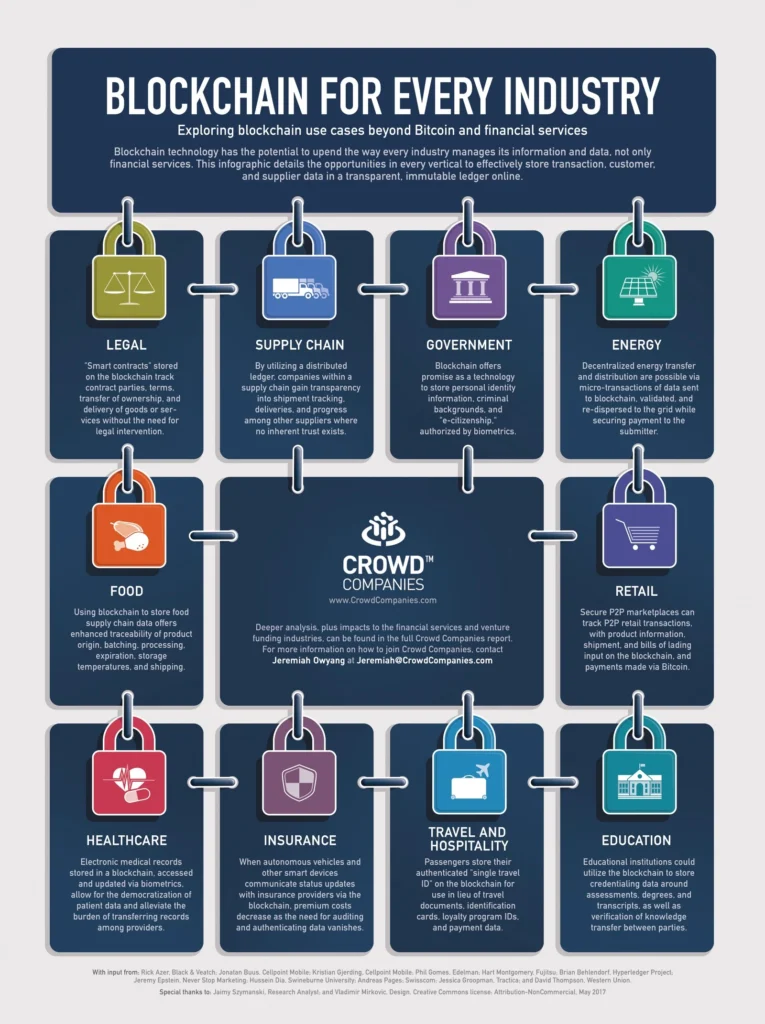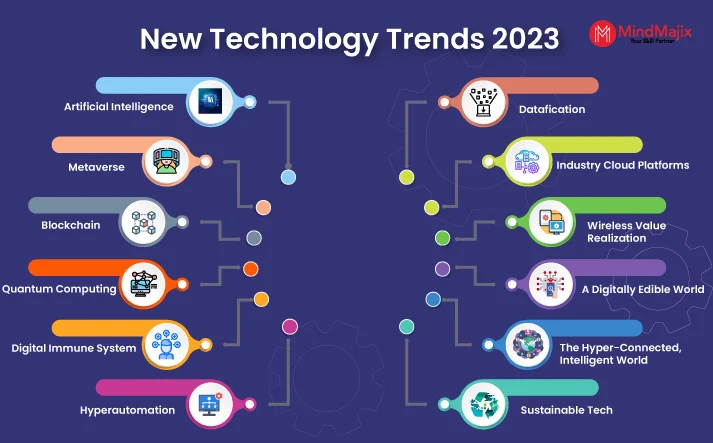Blockchain technology, originally created for the digital currency Bitcoin, has evolved to have innovative applications in various sectors such as finance, supply chain management, healthcare, and more. The decentralized and secure nature of blockchain technology has made it an attractive solution for streamlining processes and increasing transparency in different industries. From smart contracts to identity verification, blockchain technology is revolutionizing the way businesses operate and interact with each other.
In addition to its impact on finance and supply chain management, blockchain technology has also shown potential in revolutionizing healthcare, voting systems, and real estate transactions. The immutable and transparent nature of blockchain makes it a suitable solution for securely storing and sharing sensitive medical records, ensuring the integrity of voting processes, and simplifying property transactions. As blockchain continues to mature, its applications in various sectors are becoming more widespread and impactful, promising to reshape the way we conduct business and manage data.
1. Blockchain Technology: A Brief Overview
Blockchain technology is a decentralized and distributed ledger system that allows for secure and transparent peer-to-peer transactions. Originally created for the digital currency Bitcoin, blockchain has since evolved to have a wide range of applications beyond cryptocurrency. At its core, a blockchain is a growing list of records, or blocks, that are linked and secured using cryptography. Each block contains a cryptographic hash of the previous block, a timestamp, and transaction data, making it resistant to modification and tampering.
One of the key features of blockchain technology is its ability to create trust and transparency in transactions, as the information is stored across a network of computers rather than in a central location. This makes it highly secure and resistant to hacking or fraud. Additionally, blockchain technology has the potential to streamline and automate processes, reduce costs, and eliminate the need for intermediaries in various industries.
2. Blockchain in Finance and Banking
Blockchain technology has the potential to revolutionize the finance and banking sector by providing secure and efficient solutions for payments, remittances, and cross-border transactions. With blockchain, financial institutions can create a more transparent and tamper-proof record of transactions, reducing the risk of fraud and improving compliance with regulations. Smart contracts, a feature of blockchain technology, can automate and enforce the terms of agreements, reducing the need for intermediaries and streamlining processes.
Furthermore, blockchain-based digital currencies, such as stablecoins, offer an alternative to traditional fiat currencies, providing a more efficient and cost-effective means of transferring value globally. Central banks are also exploring the potential of blockchain technology to issue their own digital currencies, known as central bank digital currencies (CBDCs), which could have far-reaching implications for the future of money and monetary policy.
3. Blockchain in Supply Chain Management
Supply chain management involves the coordination and oversight of goods and services as they move from the point of origin to the point of consumption. Blockchain technology can provide greater transparency and traceability in supply chains by recording every transaction and movement of goods on a secure and immutable ledger. This can help to prevent fraud, counterfeiting, and the use of unethical labor practices, as well as ensure the quality and authenticity of products.
By using blockchain, supply chain stakeholders can track the provenance of goods, verify the authenticity of products, and streamline processes such as inventory management, logistics, and payments. This can lead to greater efficiency, reduced costs, and improved trust and collaboration among supply chain participants.
4. Blockchain in Healthcare
In the healthcare sector, blockchain technology has the potential to improve the security, privacy, and interoperability of patient data. By using blockchain, healthcare providers can create a secure and decentralized system for storing and sharing electronic health records (EHRs), ensuring that sensitive patient information is protected from unauthorized access and tampering.
Blockchain technology can also facilitate the seamless exchange of patient data between different healthcare providers, improving the continuity of care and reducing medical errors. Additionally, blockchain-based systems can enable patients to have greater control over their own health data, allowing them to securely share it with trusted third parties, such as researchers or insurers, while maintaining their privacy and consent.
5. Blockchain in Real Estate
Real estate transactions involve a complex web of intermediaries, paperwork, and potential for fraud. Blockchain technology has the potential to streamline and secure real estate transactions by providing a transparent and tamper-proof record of property ownership, transfers, and contracts. Smart contracts can automate the process of buying, selling, and leasing property, reducing the need for intermediaries and paperwork.
Furthermore, blockchain-based platforms can enable fractional ownership of real estate, allowing investors to buy and trade shares of properties without the need for traditional financing or legal complexities. This can democratize access to real estate investments and create new opportunities for liquidity and diversification in the market.
6. Blockchain in Voting and Governance
Blockchain technology can enhance the integrity and transparency of voting and governance systems by creating a secure and verifiable record of election results and government actions. By using blockchain, election authorities can ensure the immutability and auditability of voting records, reducing the risk of fraud and manipulation. This can lead to greater trust in the democratic process and increased participation in elections.
Furthermore, blockchain-based governance systems can enable decentralized decision-making and voting on issues that affect communities and organizations. This can create more inclusive and transparent governance structures, allowing for greater participation and accountability among stakeholders.
7. Blockchain in Intellectual Property and Royalties
Intellectual property rights and royalties management can be complex and inefficient, leading to disputes and underpayment for creators and rights holders. Blockchain technology can provide a secure and transparent system for managing intellectual property rights, recording ownership, and automating royalty payments. Smart contracts can ensure that creators are fairly compensated for the use of their work, eliminating the need for intermediaries and reducing disputes.
By using blockchain, creators and rights holders can have greater control and visibility over the use and monetization of their intellectual property, ensuring that they receive accurate and timely payments for their work. This can incentivize innovation and creativity, while also reducing the administrative burden and costs associated with managing intellectual property rights.
8. Blockchain in Energy and Utilities
Blockchain technology has the potential to transform the energy and utilities sector by enabling peer-to-peer energy trading, grid management, and renewable energy certificate tracking. With blockchain, energy consumers can buy and sell excess energy directly to one another, creating a more efficient and decentralized energy market. This can incentivize the adoption of renewable energy sources and reduce reliance on centralized utilities.
Furthermore, blockchain-based systems can improve the transparency and traceability of energy production and consumption, ensuring that renewable energy certificates are accurately tracked and traded. This can create greater trust and accountability in the renewable energy market, while also reducing administrative overhead and transaction costs.
9. Blockchain in Education
Blockchain technology has the potential to revolutionize the education sector by creating secure and verifiable systems for storing and sharing academic credentials, certifications, and qualifications. By using blockchain, educational institutions can create tamper-proof records of student achievements, ensuring their authenticity and integrity. This can reduce the risk of credential fraud and improve the trust and portability of educational credentials.
Furthermore, blockchain-based systems can enable the secure and transparent transfer of academic credits and qualifications between institutions, reducing administrative barriers and ensuring that students receive proper recognition for their learning achievements. This can create greater opportunities for lifelong learning and skill development, while also reducing the administrative burden on educational institutions.
10. Blockchain in Entertainment and Media
Blockchain technology can revolutionize the entertainment and media industry by providing secure and transparent systems for content distribution, rights management, and royalty payments. With blockchain, creators and rights holders can track the use and monetization of their content in a tamper-proof and automated manner, ensuring fair compensation and reducing disputes over intellectual property rights.
Additionally, blockchain-based platforms can enable direct and transparent relationships between content creators and consumers, allowing for new monetization models and peer-to-peer content sharing. This can create more equitable and efficient systems for content distribution, while also empowering creators to have greater control over their work and its value in the market.
| Sector | Innovative Application |
|---|---|
| Finance | Smart contracts for automated and secure transactions |
| Supply Chain | Tracking and tracing of products for transparency and authenticity |
| Healthcare | Secure and interoperable health data management |
| Real Estate | Efficient property title management and transfer |
| Voting Systems | Transparent and tamper-proof voting processes |
conclusıon
Blockchain technology has the potential to revolutionize various sectors by providing innovative solutions such as smart contracts in finance, supply chain transparency, secure healthcare data management, efficient real estate transactions, and transparent voting systems.




